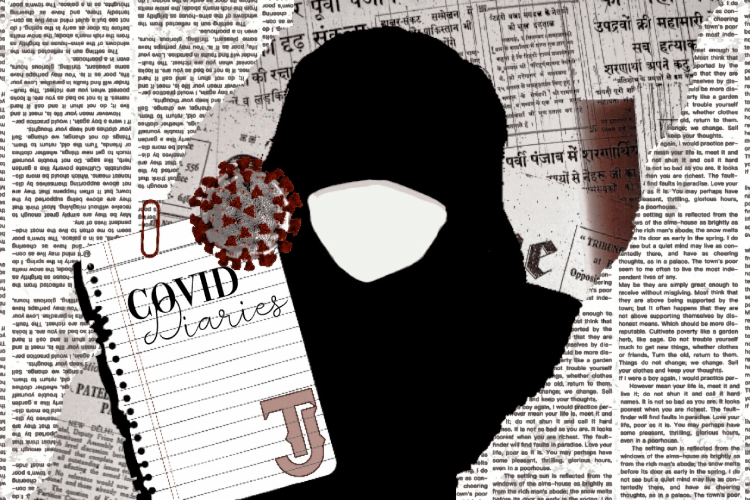
graphic by Nakya Castille
Rachel.
In May of 2020, Jeff Kasanoff tweeted a viewpoint on Americans’ behavior in the pandemic that would stay with me for a while: “Very American to decide we are bored with COVID and therefore it is over.” In the early months of quarantine, many of us have had similar thoughts watching the flood of people breaking social distancing guidelines at concerts, rallies, backyard barbecues, and all kinds of high-risk events in the middle of a global pandemic.
When Colorado went under “stay-at-home” orders some time in March, I was dead set that I was not going to leave the apartment for any reason other than to purchase necessities. It was fine for a while and, as an introvert, I was actually enjoying this time alone. It wasn’t until May when I started seeing friends posting photos on social media of in-person hangouts and trips that I started to feel like I was missing out on life. In my thoughts, as a society we all committed to a social pact that would make us limit our in-person interactions for the safety of others, so it felt like a form of betrayal seeing friends break this unspoken rule. To make matters worse, in late June I experienced COVID-19 symptoms when a family member traveling from out of the country brought the virus into our shared home. I was advised by my doctor to stay inside for 14 days.
Those days were the most wretched moments of my life. I saw friends having in-person hangouts while scrolling through Instagram, and I said to myself, “Ms. Rona got me and I haven’t even stepped 50 feet away from my home! Meanwhile, everyone on social media seems to be fine and happy and having the time of their lives.” I do not wish COVID-19 on anyone, but I couldn’t help but feel a bit bitter about my situation. At the same time, I didn’t want to approach my friends with my concerns or feelings for the fear of possibly causing a rift in our relationship. I am used to the feelings of detachment when it comes to my relationships with people that I care about. Quarantine just happened to aggravate it and left me feeling severe loneliness and “quarantine fatigue.” I started to question my friendships with people, and even thought about unfollowing friends from social media because seeing their posts brought negative feelings for me. However, I knew that if I didn’t approach the conversation directly or acted with my emotions, I may have risked losing a friendship that I really valued.
I decided to take a step back, and take some time to really think about why I was feeling the way that I was. I realized that my feelings didn’t really have to do with other people hanging out in-person (safely), but more to do with my own feelings and my crave for physical connection. After a couple of months spent at home, I took the leap and went on my first in-person hangout in late August, following the appropriate safety measures. Ultimately, I made the decision that was best for my mental health. After having exhausted all of my coping mechanisms, having a socially-distanced outdoor hangout was the best remedy for my “quarantine slump.”
People of color live in under-resourced neighborhoods, and a lot of the options that the younger people have for engaging in certain activities are not for everyone. These families depend on social programs that have been discontinued because of COVID-19. So many kids of color rely on school-based programs, like school-based meals and summer activities, which have all been cancelled. They’ve experienced a huge cut to their access to resources, from meals to social activities, that can all raise their quarantine fatigue.
It might not be the safest option to hang out with friends in-person for various reasons. However, there are ways to be with friends that are safe for both parties. If a friend does not want to hang out in-person, it might be helpful to provide alternatives, such as a virtual movie night. With so many mixed messages that are being thrown at us with apparently no end to the pandemic in sight, it’s difficult not to feel discouraged. However, during a time of so much uncertainty, social distancing is still important, but that doesn’t necessarily mean social isolation. Means like technology, masks, and distanced outdoor visits can help us get through. We must be empathetic not only towards others, but also towards ourselves.
There is no blueprint for the situation we are in — we’re all just trying our best.